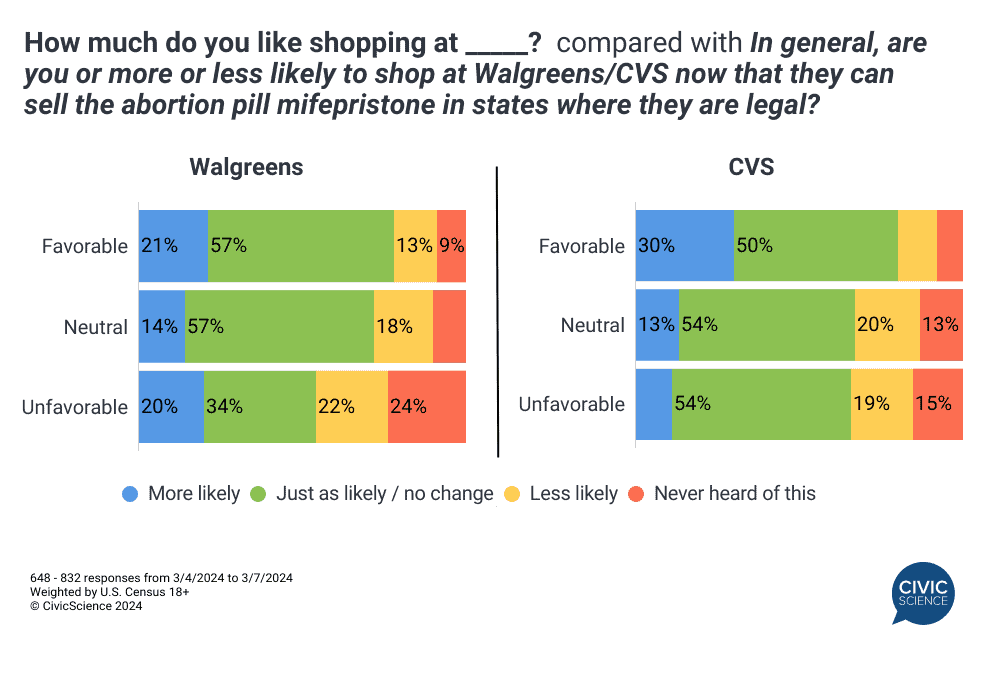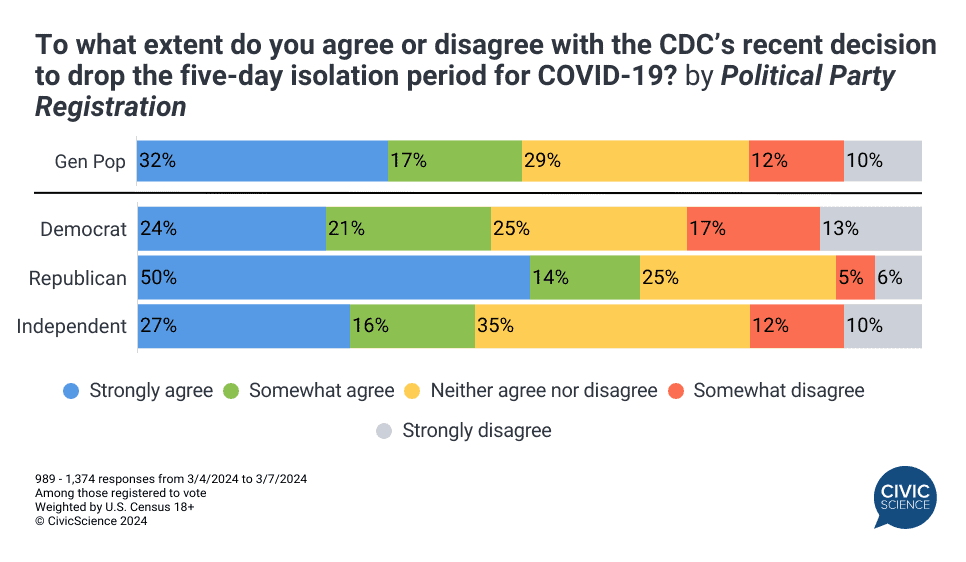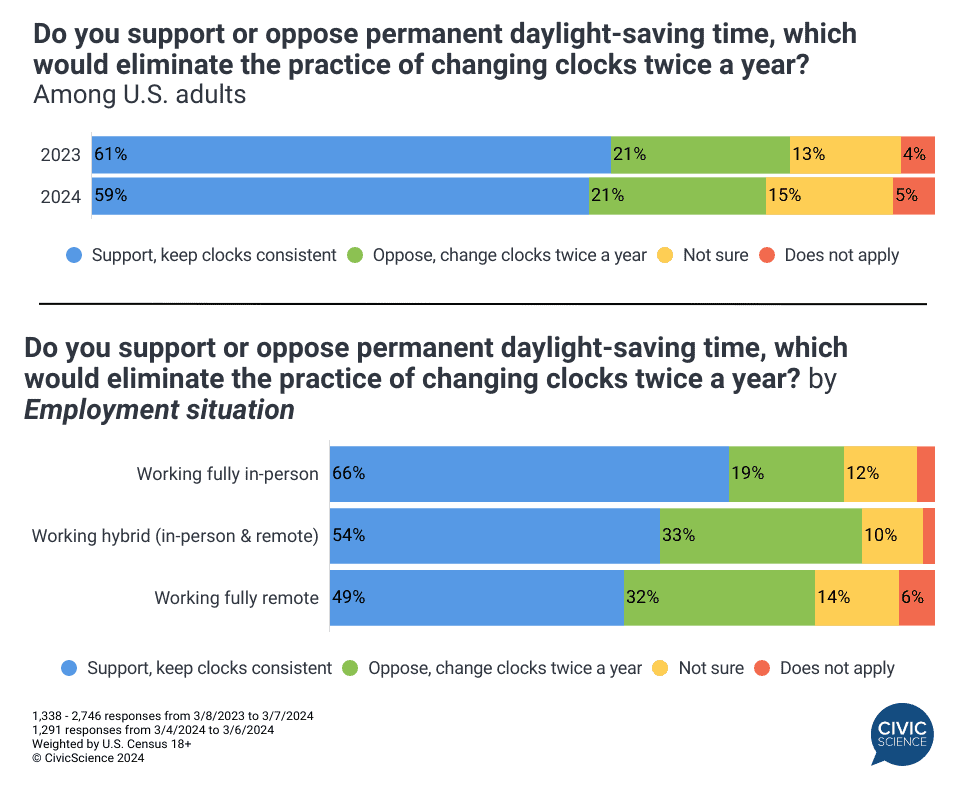CivicScience continually tracks current and anticipated consumer trends. Here are three key insights marketers should know this week. All insights are derived from the CivicScience Social | Political | Economic | Cultural (SPEC) Report, a weekly report available to clients covering the latest news and insights. Start here to learn more.
1. The majority are ’just as likely’ to shop at CVS and Walgreens now that they’re able to offer the abortion pill where it’s legal.
Starting this month, CVS and Walgreens will be able to offer the abortion pill mifepristone in states where it is legal. CivicScience data show the majority (52%) of consumers report they’re ‘just as likely’ to shop at either pharmacy following the announcement. However, consumers skew slightly toward being ‘more likely’ to shop there (19%) than ‘less likely’ (16%). Unsurprisingly, differences exist among political lines – Republicans are more than five times as likely as Democrats to say they’re ‘less likely’ to shop at Walgreens or CVS now that mifepristone can be sold there.
Additionally, CVS customers are more likely to be swayed than Walgreens customers. Thirty percent are ‘more likely’ to shop at the pharmacies, compared to 21% of Walgreens customers who say the same.

Cast Your Vote: To what extent do you support or oppose the availability of mifepristone?
2. Close to half of Americans support the CDC’s move to drop its five-day isolation recommendation for COVID-19.
The CDC recently dropped the recommended five-day quarantine period after contracting COVID-19, instead advising that people can resume regular activity once they’ve had 24 hours fever-free with symptom improvement. CivicScience data show that this was a popular move. About 1-in-2 Americans agree with the recent decision, rising to 64% among Republicans.

3. Roughly 6-in-10 Americans support using daylight saving time permanently, led by in-person workers.
Daylight saving time has arrived, meaning many Americans are losing an hour of sleep and are questioning the necessity of the practice. Nearly 60% of U.S. adults say they support making daylight saving time permanent, marking a slight two percentage point decrease from last year. Preferences vary across work environments – although support remains strong overall, two-thirds of Americans who work fully in-person are supportive of a permanent daylight saving time, nearly 20 points higher than those working fully remote.

Join the Conversation: Do you prefer daylight savings or standard time?
Want to see more of the in-depth consumer insights found in this report not covered here? Clients receive the SPEC Report in full, plus access to real-time insights driven by our database of over 500K questions. Contact us now to see it in action.








